Virtual Reality Conference takes place in Nanchang, China
A large number of industry representatives and companies will meet at the end of October for this year’s World Conference on Virtual Reality (VR) in Nanchang, capital of the eastern Chinese province of Jiangxi. The 2-day event will take place both on-site and online and this year’s main topics will be Extended Reality (XR), Cloud VR, industrial applications and entertainment.
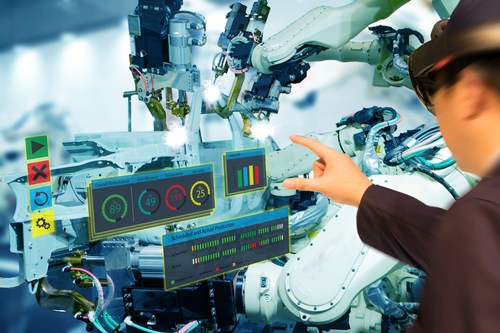
The annual conference is co-organized by the Ministry of Industry and Information Technology (MIIT) and the Government of Jiangxi Province. Last year, a total of 104 agreements and projects in the field of VR industry were signed during the event. China is experiencing growth and progress in research and development in the VR sector. Numerous product developments as well as broad application of the VR technology strengthen the still young industry. According to MIIT, the Chinese market for VR will have a volume of the equivalent of 7.7 billion US dollars by 2021.
VR devices are subject to mandatory certification in China. The abbreviation CCC stands for China Compulsory Certificate and is comparable with the European CE system, but there are important differences. With the introduction of the CCC in 2002, the authorities AQSIQ and CNCA also published a catalog that names the product groups for certification. This catalog with products requiring certification has been continuously expanded since then. A CCC certification must therefore be carried out for all products that belong to the defined product groups. The CCC Self-Declaration is the only certification possibility for CCC certification in China for certain product groups. In order to use this form of CCC certification, the applicant must be a company based in China. We can accompany and support you in all steps of the company foundation. If you have any questions or are interested in an offer, please contact us.
For more information on how CCC certification, the CCC Self-Declaration and voluntary CCAP or CQC certification may affect your company, or for more information about CCC certification in general, the process, and the associated costs, please visit our website and our News Section where you will find current updates twice a week.
Please do not hesitate to contact us for further details and consultation. You can contact us via e-mail, or call us (UK: +44 2071931135, Rest of Europe: +49 69 2713769150, US: +1 773 654-2673).
Please don’t hesitate to also use our chat-window in the bottom right corner if you have any questions. (Please check your browser settings if you can’t see the window)
You can also check out our free CCC-Brochure, which can be downloaded right here as a PDF file or you consult our book (in English) “A Brief Guide to CCC: China Compulsory Certification”, which can be found directly here on Amazon.
Here you can download our brochure about the CCC Self-Declaration.
Here you can download our brochure about the voluntary CCAP or CQC certification.
Sales figures for new cars in China in the fast lane
In China, sales figures for new vehicles in July rose by 16.7 percent year-on-year to the equivalent of 2.11 million. The data was published by the Chinese Automobile Manufacturers Association (CAAM). July is thus the fourth month in a row with positive growth. However, losses were recorded in the first seven months of the year. A decrease of 12.7 percent was recorded, which is due to adverse economic conditions and weak consumer confidence caused by the coronavirus.
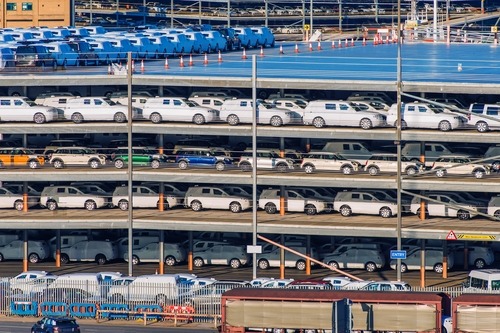
July followed solid growth in June and May of this year with growth rates of 11.6 and 14.5 percent respectively. These figures suggest that under certain conditions the automotive market in China has recovered rapidly. According to CAAM, favorable policies of both central and local governments and a return to good consumer sentiment have been key factors in this development. The CAAM manufacturers’ association hopes that local governments will continue to provide incentives to boost sales of new cars. It reminds car manufacturers to pay special attention to the latest announcements and to plan their production and operations accordingly.
Of the 2.1 million new vehicles sold in July, 1.67 mllion were passenger cars and 447,000 were commercial vehicles. The growth rates compared with the previous year were 8.5 and 59.4 percent respectively. A twelve-month downward trend in vehicles with new-energy drives was broken in July. Compared to the previous year, sales of electric cars rose by 24.2 percent to 79,000 vehicles, and plug-in hybrids by 2.7 percent to 19,000 vehicles. The number of nationwide charging stations amounts to 566,000, with 7,800 new stations installed in July alone. In the area of CCC certification of automotive parts and vehicles, the Chinese requirements are particularly high. If you need CCC certification in the automotive sector, China Certification is an excellent partner for you. We have been advising leading automotive suppliers and vehicle manufacturers on their CCC certifications for years.
Please call or email us anytime. You can contact us via e-mail, or call us (UK: +44 2071931135, Rest of Europe: +49 69 2713769150, US: +1 773 654-2673).
Also check our website if you want more information regarding CCC certification, the CCC Self-Declaration and voluntary CCAP or CQC certification, or for more information about CCC certification in general, the process, and the associated costs, please visit our website and our News Section where you will find current updates once a week.
You can also check out our free CCC-Brochure, which can be downloaded right here as a PDF file or you consult our book (in English) “A Brief Guide to CCC: China Compulsory Certification”, which can be found directly here on Amazon.
Here you can download our brochure about the CCC Self-Declaration.
Here you can download our brochure about the voluntary CCAP or CQC certification.
5th Congress of China Boiler and Boiler Water Treatment Association Successfully Held in Suzhou, China
The fifth Congress of the China Boiler and Boiler Water Treatment Association was held in Suzhou August 11-12, 2020.
The event started with an opening ceremony attended by, among others, Zhang Hongwei, Deputy Director of the Special Equipment Safety Supervision Bureau of State Administration for Market Regulation (SAMR), Guo Yuanliang, Vice President of the China Special Equipment Inspection & Research Institute (CSEI), and Li Jun, Vice President of CSEI. A total of 373 members of the Association attended the meeting.
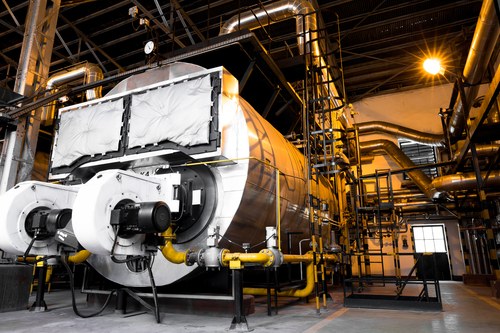
The main topics discussed at the congress were new technologies and the boiler safety risk. Zhang Hongwei pointed out that new materials, new technologies and improved processes are making boiler manufacturing and use increasingly complex He also stressed that the safety risks are still quite high.
Mr. Li Jun, Vice-President of CSEI (China Special Equipment Inspection and Research Institute), reported on the work of the Fourth Association Council and suggested the following: It is important to define the direction of development and to put it more on focus. It is also necessary to have a clear understanding of the development trend and to guide the development through innovation. As a last point he said it is essential to push the development of the sector, especially in times of social and economic transformation.
A highlight of the congress was the speech of the new director of the Council, Qiu Jiayou, on the topic “Taking the road of innovation, sharing and development to promote China boiler and water treatment industry to a new level”. In his speech, Mr Qiu Jiayou underlined the mission of the Association, stressing that it would work hard to make more progress and “shoulder the mission to a new journey”.
If you want to import a boiler or pressure vessel into China, you may need a SELO licence.
The China Manufacture License (CML or SELO License) is administered by the China Special Equipment Licensing Office (SELO) which is part of the State Administration for Market Regulations (SAMR).
We will gladly check free of charge whether your product meets the requirements. Please contact us for more details and a detailed consultation. Send us an email or call us at +49-69-2713769150.
Taiwan – A Demanding Consumer Market Oriented Towards International Trends
Taiwan has become an increasingly important market in the Asian region. Taiwan is considered by experts as a demanding consumer market, due to a strong involvement in the global economy, consumers are influenced by international trends. In 2019 Taiwan imported products from around the world with a total merchandise value of approximately $290 billion.
Taiwan has enacted laws and regulations for the quality assurance of certain products including suitcases, tires, eye protection products, electronic products and many more. BSMI certification is required for these products in order to import these products to Taiwan.
The application for a BSMI certificate in Taiwan must be submitted to the administrative authority of the Ministry of Economic Affairs in Taiwan “Bureau of Standards, Metrology and Inspection” (BSMI). The conformity assessment for BSMI certification varies depending on the product type. The process can consist of a pure document review, but it can also include product tests and / or a factory inspection.
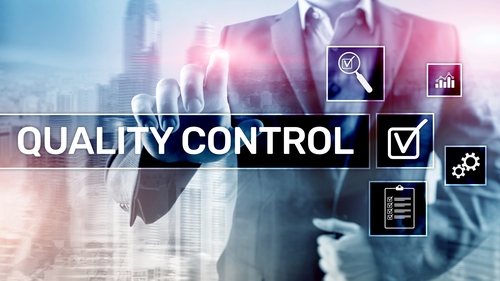
One of the requirements for filing an application is that a domestic company or a person whose place of residence or business is located in Taiwan acts as the applicant. For products that are imported the applicant can be a commercial agent or an importer.
If you have any questions about the process, or would like to find out whether your product requires a BSMI Certification you can contact us at any time. We would be happy to assist you with the entire BSMI certification process.
Do you have any questions regarding certifications? You can send us an e-mail or call us at +49-69-2713 769 150 for Europe or +1-773-654-2673 for America. We will gladly support you. You can also contact us via the chat function on our website. You will find the chat window at the bottom right of each page (if this is not visible, please check your browser settings).
China imports computer chips worth 300 billion US dollars
This year China will import computer chips worth at least 300 billion US dollars. According to a spokesman for the Chinese Industry Association, this is the third year in a row and a sign of the country’s dependence on foreign know-how despite efforts to strengthen domestic manufacturing expertise. Wei Shaojun, the vice president of the Chinese Semiconductor Industry Association, said at a conference that China is currently the world’s largest importer of computer chips and other semiconductors. In 2013, the value of chip imports to China was more than 200 billion US dollars, in 2018 and 2019 more than 300 billion US dollars, and a similar amount is expected for the current year 2020.
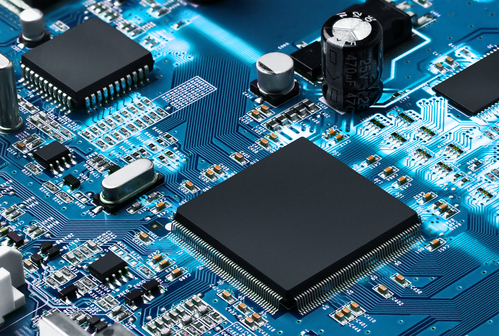
Wei estimates that about half of all computer chips are processed into products that are then exported. In the past, China has invested enormous sums in research and the development of a domestic semiconductor industry. The recently flared up dispute between the USA and the Chinese technology group Huawei increases the pressure on local companies. The Trump government issued a decree last month that prevents companies from exporting certain computer chips containing proprietary technology from the US. Instead, a separate license is now required for export. Industry insiders suspect that this move is intended to make it more difficult for Huawei to gain access to standard computer chips manufactured in the USA, disrupt the global supply chain and attack Huawei’s leadership in the smartphone market.
China’s efforts to build a local and independent semiconductor industry are led by, among others, the largest domestic chip manufacturer, Semiconductor Manufacturing International Corp. The company plans to increase its equity and spending but is experiencing difficulties with technologies for production due to lack of know-how. Industry President Wei warned that tensions between the US and China could further intensify and warned that the semiconductor industry has a strong global linkage and that in the event of disruptions all parties involved would be negatively affected. Certain product groups, such as machines or electronic devices, must be awarded a CCC certificate in order for products to be exported to China or manufactured locally. The CCC certificate was introduced in 2002 and applies to both imported and Chinese products. The Chinese CCC is similar to other certifications for standardizing product quality, such as the European CE system, but there are important differences. We would be happy to advise you without obligation on the scope and requirements of a China CCC certification.
For more information on how CCC certification, the CCC Self-Declaration and voluntary CCAP or CQC certification may affect your company, or for more information about CCC certification in general, the process, and the associated costs, please visit our website and our News Section where you will find current updates twice a week.
Please do not hesitate to contact us for further details and consultation. You can contact us via e-mail, or call us (UK: +44 2071931135, Rest of Europe: +49 69 2713769150, US: +1 773 654-2673).
You can also check out our free CCC-Brochure, which can be downloaded right here as a PDF file or you consult our book (in English) “A Brief Guide to CCC: China Compulsory Certification”, which can be found directly hier on Amazon.
Here you can download our brochure about the CCC Self-Declaration.
Here you can download our brochure about the voluntary CCAP or CQC certification.


